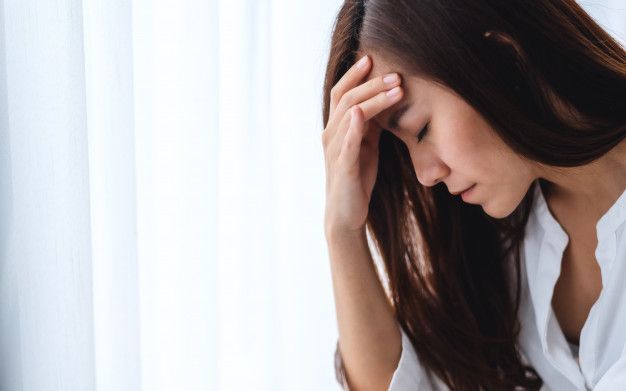When there’s a water shortage in your body, it would lead to the emergence of feeling thirsty all the time . There can be various causes of feeling thirsty all the time but the most common ones can be hot and humid weather, high body function or intense workout, etc. However, if you’re feeling thirsty in normal conditions, there are chances that you might be facing some health issues.
Feeling thirsty all the time, even when there are no special circumstances is not natural and if you’ve been experiencing it, it would be a good idea to get yourself checked. Have you been feeling thirsty all the time, even after drinking loads of water? Do you feel dehydrated and stuffy, throughout the day? Don’t worry! In this article, we’ll be talking about the reasons behind your constant thirst and how to stop feeling thirsty all the time.
Also, read: Benefits of Drinking Water
Causes of Feeling Thirsty all the Time
Here are the several reasons behind feeling thirsty all the time:
This is a condition that refers to your blood not containing enough RBCs or red blood cells. Anemia can occur due to several reasons for some people, whereas, it’s genetic for others. The reasons might be having an inefficient or poor diet, heavy bleeding, or other conditions. You would feel thirsty all the time only if you’re severely anemic. It’s rare for those with milder symptoms. Some of the major signs of anemia are sweating, fatigue, rapid pulse rate, dizziness, and yellowish or pale skin.
This type of diabetes is caused due to lower secretion of the insulin hormone. This results in the rise of glucose or sugars in the body. Thus, polydipsia or feeling thirsty all the time follows. Other symptoms of diabetes mellitus include hunger, tiredness, blurry or unclear vision, slow clotting of blood, and curing of wounds. Due to the presence of excess glucose in the urine, more water is drawn in and a shortage of water arises in the body due to frequent use of the washroom. If you have diabetes, you may feel thirsty all the time.
This is in no way synonymous with diabetes mellitus and occurs when the body does not produce enough of the ADH hormone that’s responsible for the regulation of water in our bodies by the kidneys. Dehydration is a common symptom of diabetes insipidus and this leads to an increased water intake and the periodic need to pee.
A lot of factors can be responsible for dehydration; sweating, diarrhea, exercising, vomiting being a few. When your body does not have enough water to carry out the basic bodily functions, that’s when you are dehydrated. If you’ve been noticing dry skin, dry mouth, headaches, lightheadedness, dark-colored urine, or little to no urge to pee throughout the day, there are chances that you’re dehydrated and you need to drink water and hydrate yourself as soon as you can.
Your mouth tends to become dry when it does not produce enough saliva. This can be caused due to side effects of certain medicines, the treatment of diseases like Sjogren’s syndrome, cancer, nerve damage in the neck or the head, etc. It can also happen if you are addicted to tobacco or alcohol. The other signs associated with the low production of saliva are problems while chewing food, irritation and ache in the gums, bad breath, etc.
The probable factors causing this condition are sarcoidosis, tuberculosis, cancer, hyperparathyroidism, etc. It is characterized by the excessive concentration of calcium in the blood. Stomach upset, continuous urge to pee, constipation, throwing up, nausea, weak bones and muscles, arrhythmia and other heart issues, and brain conditions like depression and dilemma are the other symptoms of Hypercalcemia.
The heavy blood flow, especially on the initial days of your period can reduce the water level of the body. The progesterone and estrogen hormones also affect the fluid content. This is why feeling thirsty all the time during your periods is a normal phenomenon.
 Stress
Stress Chronic stress is indicated by the slower function of the adrenal glands. Thus, when the intensity of stress is more, blood pressure is low. This can result in dizziness, thirst, and mental conditions like anxiety and depression. When you drink water, the blood pressure would rise. Thus, feeling thirsty all the time can signify low blood pressure as well.
Recommended Read: Stress And Weight Gain
How to Stop Feeling Thirsty all the Time?
Here are the best 6 Ways Of Quenching Thirst:
1. Consume Fruits and Vegetables
Certain fruits and veggies have a very high concentration of water and you should include them in your diet to stop feeling thirsty all the time.
2. Avoid Excessive Spice and Salt
Foods that contain high amounts of sodium are known to make you feel thirsty. Thus, you should avoid spicy and salty foods if you feel very thirsty throughout the day.
3. Try Chewing Gum
Studies show that chewing gum can reduce the occurrence of a dry mouth and reduce the intake of too much water.
4. Treating Conditions
 Stop Feeling Thirsty all the Time
Stop Feeling Thirsty all the TimeApart from the basic measures to quench thirst, the cure to specific issues is also important that comprise major causes of feeling thirsty all the time. Talk to your physician about the same and go for regular checkups if you have chronic illnesses.
5. Hydrating Supplements
There are several supplements available in the market that can hydrate you, such as electrolytes. These supplements won’t let you feel thirsty all the time and they act as a great alternative to water.
6. Diet
You need a proper, balanced diet, full of green leafy vegetables, for the right kind of hydration. Not eating properly can also result in dehydration and thirst.
Related: Drinks To Quench Your Thirst
Conclusion
Now that you’re aware of all the causes of feeling thirsty all the time and how you can reduce your thirst, you would be able to monitor the amounts of your water intake throughout the day. While it’s not advisable to drink less water, it’s also not a good idea to drink excessive water. You should maintain a balance and have moderate amounts of water, such as 8-9 glasses per day. This is the perfect amount for all body types, in general practice.

